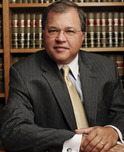Posts Tagged ‘“web page”’
Rant On: Who’s Been Stealing Our Web Content Lately?
 Have you ever checked to see who might be “borrowing” the copyrighted material on your web pages or blogs? Well it is easy to do, and some of the results may really disappoint you.
Have you ever checked to see who might be “borrowing” the copyrighted material on your web pages or blogs? Well it is easy to do, and some of the results may really disappoint you.
Many lawyers, we among them, devote a tremendous amount of time and resources to keep our web pages and blogs up to date, full of relevant content, and, hopefully, interesting to our readers. There is certainly enough pressure to be original. And while I’m sure we can all admit being inspired by the words of others, we use that inspiration to create original pages on the same or related topics.
Sadly some authors are simply too lazy or dishonest to use their own words–they plagiarize yours and mine, passing it off as original content. Why does this matter? Well, for one thing it is illegal; our little copyright symbol should make that perfectly clear. Apart from the misappropriation, having the same content on multiple pages hurts rankings in the eyes of search engines, so the original author suffers further harm from the down-ranking.
We have investigated improper use of our content on a number of occasions. A recent search found dozens of offending sites.
Overwhelmingly the content has been lifted by web authors hired by law firms to create their websites, and the law firms which bought the content were misled about what they were buying. (Quick aside: I found a site that was almost verbatim our site, and it belonged to a good friend. After I called him he immediately took it down. He was really embarrassed too. He had told his web developer he wanted a site “like ours,” but he never told him to copy it exactly!)
It is likely, however, that some among us are publishing the work of others with full knowledge of just how wrong it is.
Finding the Plagiarism
Finding the offenders is easy. Just highlight a unique snippet (google allows up to 36 words), and right click for a google search or paste it into a search window. There are also several copy checking services which you can buy. Here is a good article ranking the top five plagiarism detectors. Plaigiarism Today also offers a number of suggestions on finding and managing copyright violations.
If the search results pull up the exact same (or strikingly similar) phrase in another website, you may have found an offender. Compare the page to yours, and you will likely find more copying. Check a few other pages while you are at it; often content will be misappropriated across a number of pages. Some of the searches reveal pretty silly results. For example, we found a law firm in California that is handling cases against the MBTA (that stands for Massachusetts Bay Transportation Authority, folks), and a firm that even copied misspelled words.
If you are like us, you will say “hmmmm” (actual words omitted) and probably experience a slight increase in blood pressure as well. It’s time for action.
Dealing with Offenders
Once I have found a page that has lifted content from our site, and checked the offending site for additional misappropriated content, I contact the firm. I ask for a top partner, and I explain what is wrong. I also explain that I consider them likely to be innocent victims; my call is not a personal accusation. I follow that up with an email and a letter detailing where the offending content is and asking for prompt remedy.
Almost everybody is immediately responsive. Often, when they learn that they have paid for purloined content, they get angry too, and take their complaints to their web providers. Keeping things cordial has generally been pretty easy. In fact, I have even met a few referring attorneys through my exchanges over their (our) web content.
Copyscape (http://www.copyscape.com) provides a number of tips about plagiarism and suggestions on responding to plagiarism. The ultimate weapon is a complaint under the Digital Millennium Copyright Act (DCMA). The offending content will be blacklisted. For us this would be a last resort, only after polite requests for corrections were ignored.
Other Ways to Protect Yourself
The people you hire–whether staff or consultants–must be monitored to make sure they are not plagiarizing others. If you are suspicious, spot check their work using the tools above. Demand a certification from your consultants that their work is original.
Copyscape offers free logos which you can put on your page–that may be a deterrent for some, but probably not all.
Unfortunately, due diligence to protect your copyrighted material is just one more thing you need to keep on your to-do list.
Read More
Read More

